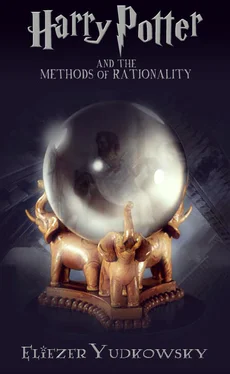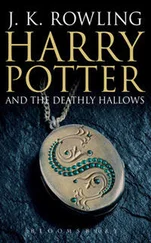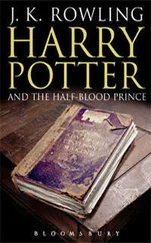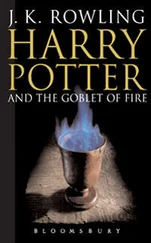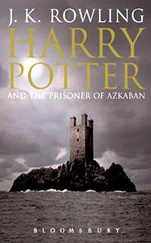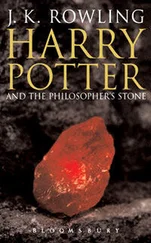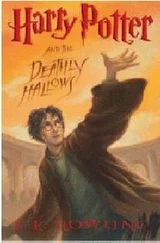Eliezer Yudkowsky - Harry Potter and the Methods of Rationality
Здесь есть возможность читать онлайн «Eliezer Yudkowsky - Harry Potter and the Methods of Rationality» весь текст электронной книги совершенно бесплатно (целиком полную версию без сокращений). В некоторых случаях можно слушать аудио, скачать через торрент в формате fb2 и присутствует краткое содержание. Жанр: Юмористическая фантастика, на английском языке. Описание произведения, (предисловие) а так же отзывы посетителей доступны на портале библиотеки ЛибКат.
- Название:Harry Potter and the Methods of Rationality
- Автор:
- Жанр:
- Год:неизвестен
- ISBN:нет данных
- Рейтинг книги:3 / 5. Голосов: 1
-
Избранное:Добавить в избранное
- Отзывы:
-
Ваша оценка:
- 60
- 1
- 2
- 3
- 4
- 5
Harry Potter and the Methods of Rationality: краткое содержание, описание и аннотация
Предлагаем к чтению аннотацию, описание, краткое содержание или предисловие (зависит от того, что написал сам автор книги «Harry Potter and the Methods of Rationality»). Если вы не нашли необходимую информацию о книге — напишите в комментариях, мы постараемся отыскать её.
Harry Potter and the Methods of Rationality — читать онлайн бесплатно полную книгу (весь текст) целиком
Ниже представлен текст книги, разбитый по страницам. Система сохранения места последней прочитанной страницы, позволяет с удобством читать онлайн бесплатно книгу «Harry Potter and the Methods of Rationality», без необходимости каждый раз заново искать на чём Вы остановились. Поставьте закладку, и сможете в любой момент перейти на страницу, на которой закончили чтение.
Интервал:
Закладка:
“And eventually,” Harry said through the heart-sickness, “you realized you were just having more fun as Voldemort.”
“It is the least annoying role I have ever played. If Lord Voldemort says that something is to be done, people obey him and do not argue. I did not have to suppress my impulse to Cruciate people being idiots; for once it was all part of the role. If someone was making the game less pleasant for me, I just said Avadakedavra regardless of whether that was strategically wise, and they never bothered me again.” Professor Quirrell casually chopped a small worm into bits. “But my true epiphany came on a certain day when David Monroe was trying to get an entry permit for an Asian instructor in combat tactics, and a Ministry clerk denied it, smiling smugly. I asked the Ministry clerk if he understood that this measure was meant to save his life and the Ministry clerk only smiled more. Then in fury I threw aside masks and caution, I used my Legilimency, I dipped my fingers into the cesspit of his stupidity and tore out the truth from his mind. I did not understand and I wanted to understand. With my command of Legilimency I forced his tiny clerk-brain to live out alternatives, seeing what his clerk-brain would think of Lucius Malfoy, or Lord Voldemort, or Dumbledore standing in my place.” Professor Quirrell’s hands had slowed, as he delicately peeled bits and small strips from a chunk of candle-wax. “What I finally realized that day is complicated, boy, which is why I did not understand it earlier in life. To you I shall try to describe it anyway. Today I know that Dumbledore does not stand at the top of the world, for all that he is the Supreme Mugwump of the International Confederation. People speak ill of Dumbledore openly, they criticize him proudly and to his face, in a way they would not dare stand up to Lucius Malfoy. You have acted disrespectfully toward Dumbledore, boy, do you know why you did so?”
“I’m… not sure,” Harry said. Having Tom Riddle’s leftover neural patterns was certainly an obvious hypothesis.
“Wolves, dogs, even chickens, fight for dominance among themselves. What I finally understood, from that clerk’s mind, was that to him Lucius Malfoy had dominance, Lord Voldemort had dominance, and David Monroe and Albus Dumbledore did not. By taking the side of good, by professing to abide in the light, we had made ourselves unthreatening. In Britain, Lucius Malfoy has dominance, for he can call in your loans, or send Ministry bureaucrats against your shop, or crucify you in the Daily Prophet, if you go openly against his will. And the most powerful wizard in the world has no dominance, because everyone knows that he is,” Professor Quirrell’s lips curled, “ a hero out of stories, relentlessly self-effacing and too humble for vengeance. Tell me, child, have you ever seen a drama where the hero, before he consents to save his country, demands so much gold as a barrister might receive for a court case?”
“Actually there have been a lot of heroes like that in Muggle fiction, I’ll name Han Solo just to start—”
“Well, in magical drama it is not so. It is all humble heroes like Dumbledore. It is the fantasy of the powerful slave who will never truly rise above you, never demand your respect, never even ask you for pay. Do you understand now?”
“I… think so,” Harry said. Frodo and Samwise from Lord of the Rings did seem to match the archetype of a completely non-threatening hero. “You’re saying that’s how people think of Dumbledore? I don’t believe the Hogwarts students see him as a hobbit.”
“In Hogwarts, Dumbledore does punish certain transgressions against his will, so he is feared to some degree—though the students still make free to mock him in more than whispers. Outside this castle, Dumbledore is sneered at; they began to call him mad, and he aped the part like a fool. Step into the role of a savior out of plays, and people see you as a slave to whose services they are entitled and whom it is their enjoyment to criticize; for it is the privilege of masters to sit back and call forth helpful corrections while the slaves labor. Only in the tales of the ancient Greeks, from when men were less sophisticated in their delusions, may you see the hero who is also high. Hector, Aeneas, those were heroes who retained their right of vengeance upon those who insulted them, who could demand gold and jewels in payment for their services without sparking indignation. And if Lord Voldemort conquered Britain, he might then condescend to show himself noble in victory; and nobody would take his goodwill for granted, nor chirp corrections at him if his work was not to their liking. When he won, he would have true respect. I understood that day in the Ministry that by envying Dumbledore, I had shown myself as deluded as Dumbledore himself. I understood that I had been trying for the wrong place all along. You should know this to be true, boy, for you have made freer to speak ill of Dumbledore than you ever dared speak ill of me. Even in your own thoughts, I wager, for instinct runs deep. You knew that it might be to your cost to mock the strong and vengeful Professor Quirrell, but that there was no cost in disrespecting the weak and harmless Dumbledore.”
“Thank you,” Harry said through the pain, “for that valuable lesson, Professor Quirrell, I see that you are right about what my mind was doing.” Though Tom Riddle’s memories had probably also had something to do with the way he had sometimes lashed out at Dumbledore for no good reason, Harry hadn’t been like that around Professor McGonagall… who admittedly had the power to deduct House Points and didn’t have Dumbledore’s air of tolerance… no, it was still true, Harry would have been more respectful even in his own thoughts if Dumbledore had not seemed safe to disrespect.
So that had been David Monroe, and that had been Lord Voldemort…
It still hadn’t answered the most puzzling question, and Harry wasn’t sure that asking it would be wise. If, somehow, Lord Voldemort had managed not to think of it, and then Professor Quirrell had still managed not to think of it during nine years of contemplation, then it wasn’t wise to say… or maybe it was; the agonies of the Wizarding War had not been good for Britain.
Harry decided, and spoke. “One thing that did confuse me was why the Wizarding War lasted so long,” Harry ventured. “I mean, maybe I’m underestimating the difficulties that were facing Lord Voldemort—”
“You want to know why I did not Imperius some of the stronger wizards who could Imperius others, slay the very strongest wizards who could have resisted my Imperius, and take over the Ministry in, oh, perhaps three days.”
Harry nodded silently.
Professor Quirrell looked contemplative; his hand was sifting grass clippings into the cauldron, bit by bit. That ingredient, if Harry remembered correctly, was something like four-fifths towards the end of the recipe.
“I wondered that myself,” the Defense Professor said finally, “when I heard Trelawney’s prophecy from Snape, and I contemplated the past as well as the future. If you had asked my past self why he did not use the Imperius, he would have spoken of the need to be seen to rule, to openly command the Ministry bureaucracy, before it was time to turn his eyes outward to other countries. He would have remarked on how a quick and silent victory might bring challenges later. He would have remarked on the obstacle presented by Dumbledore and his incredible defensive prowess. And he would have had similar excuses for every other quick path he considered. Somehow it was never the right time to bring my plans to their final phase, there was always one more thing to do first. Then I heard the prophecy and I knew that it was time, for Time itself was taking notice of me. That the span for hesitation was done. And I looked back, and realised somehow this had been going on for years. I think…” The occasional bit of grass was still dropping down from his hand, but Professor Quirrell did not seem to pay it any mind. “I thought, when I was contemplating my past beneath the starlight, that I had become too accustomed to playing against Dumbledore. Dumbledore was intelligent, he tried diligently to be cunning, he did not wait for me to strike but presented me with surprises. He made bizarre moves that played out in fascinating and unpredictable ways. In retrospect, there were many obvious plans for destroying Dumbledore; but I think some part of me did not want to go back to playing solitaire instead of chess. It was when I had the prospect of creating another Tom Riddle to plot against, someone even more worthy than Dumbledore, that I was first willing to contemplate the end of my war. Yes, in retrospect that sounds stupid, but sometimes our emotions are more foolish than we can bring our reason to admit. I would never have espoused such a policy deliberately. It would have violated Rules Nine, Sixteen, Twenty, and Twenty-two and that is too much even if you are enjoying yourself. But to repeatedly decide that there was one more thing left to be done, one more advantage left to be gained, one more piece that I simply had to move into place, before abandoning an enjoyable time in my life and moving on to the more tedious rulership of Britain… well, even I am not immune to a mistake like that, if I do not realize that I am making it.”
Читать дальшеИнтервал:
Закладка:
Похожие книги на «Harry Potter and the Methods of Rationality»
Представляем Вашему вниманию похожие книги на «Harry Potter and the Methods of Rationality» списком для выбора. Мы отобрали схожую по названию и смыслу литературу в надежде предоставить читателям больше вариантов отыскать новые, интересные, ещё непрочитанные произведения.
Обсуждение, отзывы о книге «Harry Potter and the Methods of Rationality» и просто собственные мнения читателей. Оставьте ваши комментарии, напишите, что Вы думаете о произведении, его смысле или главных героях. Укажите что конкретно понравилось, а что нет, и почему Вы так считаете.
